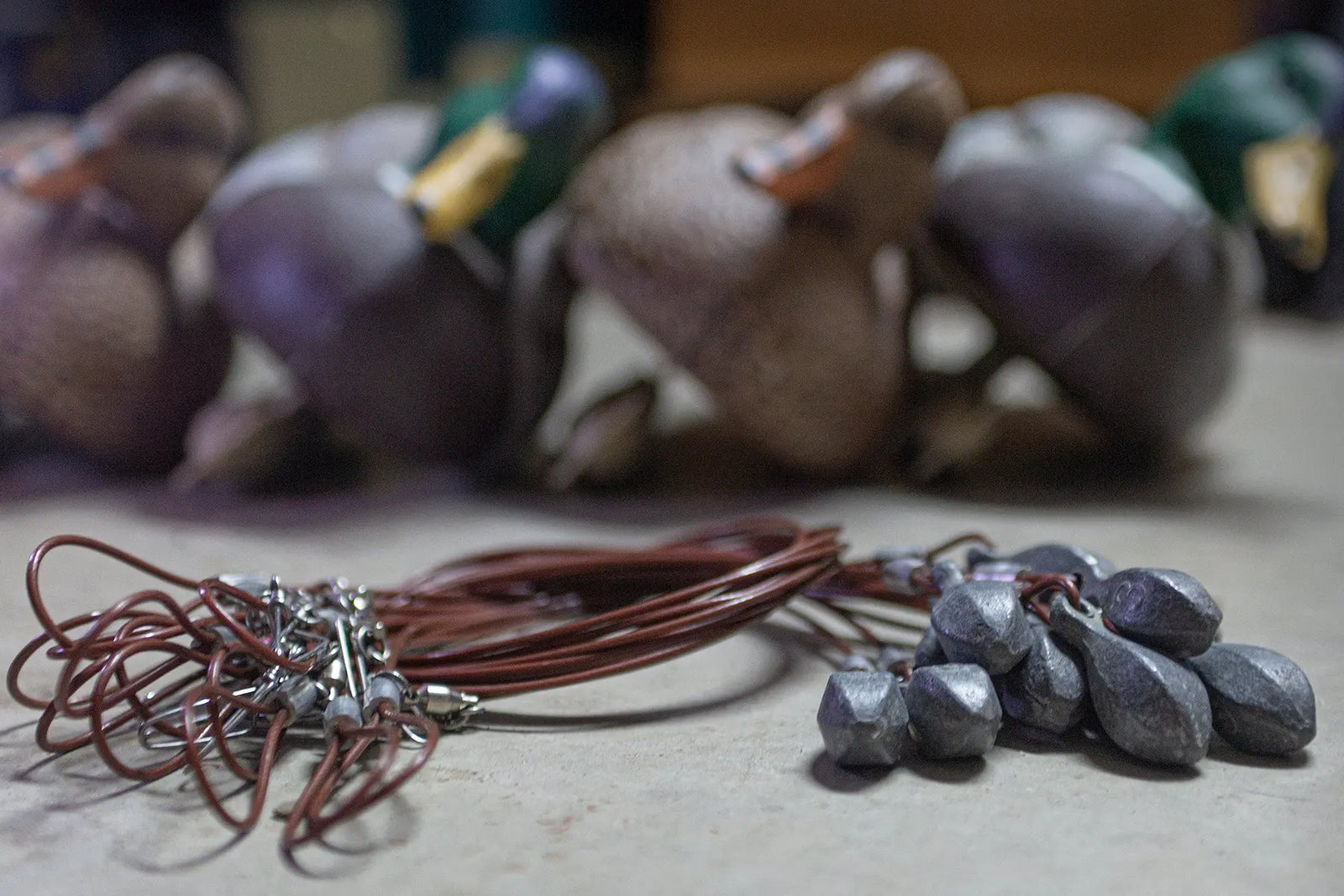Your Cart is Empty
free shipping on orders above $99
Menu
-
- Shop
- Product Support
- Media
- Product Registration
- About Us
-
- 1-877-245-9113
- Login
-
United States (USD $)

free shipping on orders above $99

Summer Gear Maintenance
May 25, 2021 3 min read
Summer is a great time to get organized and prepare for those first fall cold fronts and the whistling wings that migrate in on them. Waterfowling is an equipment intensive pursuit and can require a sizable investment in decoys, calls, shotguns, waders, and boats. Follow these summer maintenance tips to get the most bang out of your buck and extend the life of your gear for seasons to come.
Decoys
Don’t lose your deeks downstream. Inspect the anchors, anchor cords, and connectors to ensure all crimps, swivels, and knots are working properly. Regardless of what anchoring system you use, the connections are usually the weakest link. Make sure your swivels are closed and still swiveling at attachment points, crimps are fully crimped, and knots are free of any knicks or fraying. For plastic decoys, clean them by spraying with a water hose, or even take them to a carwash and use the high-pressure nozzle on the rinse setting to loosen up any caked-on mud or dried vegetation. Once they are mostly clean, use a stiff brush to remove any remaining debris. Allow the decoys to dry completely before putting them into storage. For flocked decoys, use a bit more care by using an air compressor to blow any dried mud free. Inspect each decoy and touch up any paint and flocking that needs to be repaired.
Calls
Poly and acrylic calls are very low maintenance but consider cleaning the soundboard every year and replacing the cork every other year, regardless of its materials. Buck Gardner offers tune-up kits that include everything you need to replace worn out reeds, corks, and wedges (https://buckgardner.com/collections/accessories). For those who aren’t comfortable going the DIY route, Buck Gardner also offers free tuning services (include link to https://buckgardner.com/pages/customer-service) for the life of the call with a small return shipping fee. Avoid storing acrylic calls during the summer temperatures in a hot garage or truck. The excess heat can cause the call to change shape and lose its tone.
Shotguns
Unload and store your gun outside of its case to prevent it from rusting. Breaking it down and using a high-quality cleaning solvent will help remove dirt and moisture from the metal parts. After a thorough cleaning, wipe the solvent off and add a light coating of gun oil to help lubricate moving parts and repel against future moisture exposure. Don’t use too much though, excess oil can gum up mechanical parts by holding on to contaminants and potentially cause future reliability issues. Adding in a small battery-operated dehumidifier to your gun locker or safe is also a great way to fight off corrosion on those heirloom firearms while stored away.
Waders
Depending on how and where you hunt, briars and barbed wire can be hell on your waders. Inspect waders for any leaks or tears and repair them with Aquaseal or other wader repair kits. Wash the waders by hand with a mild detergent and allow to air dry. Adding a light coat of Armor All spray on the boots helps condition them and prevents the rubber from dry rotting. Store your waders by hanging them upside down by the boots or lying flat. Resist the urge to fold them up, as creasing them can cause stress points across the fold.
Boat
The off season is a great time to have your engine serviced. Start off by checking your fuel line. If the hose is overly stiff or soft, it probably needs to be replaced. Always store your boat with the tank full of fresh gas and with the proper amount of a stabilizer approved by the manufacturer. This reduces the amount of space for water vapor to condense inside your fuel tank and gum up, causing the need for a new carburetor. Go ahead and lubricate at the lube points such as the shift and throttle linkages to keep them smooth on those cold late season mornings.
By following these tips, your gear should give you enjoyment in the field, season after season.
John Gay
Buck Gardner Pro Staff
Subscribe
Sign up to get the latest on sales, new releases and more …
